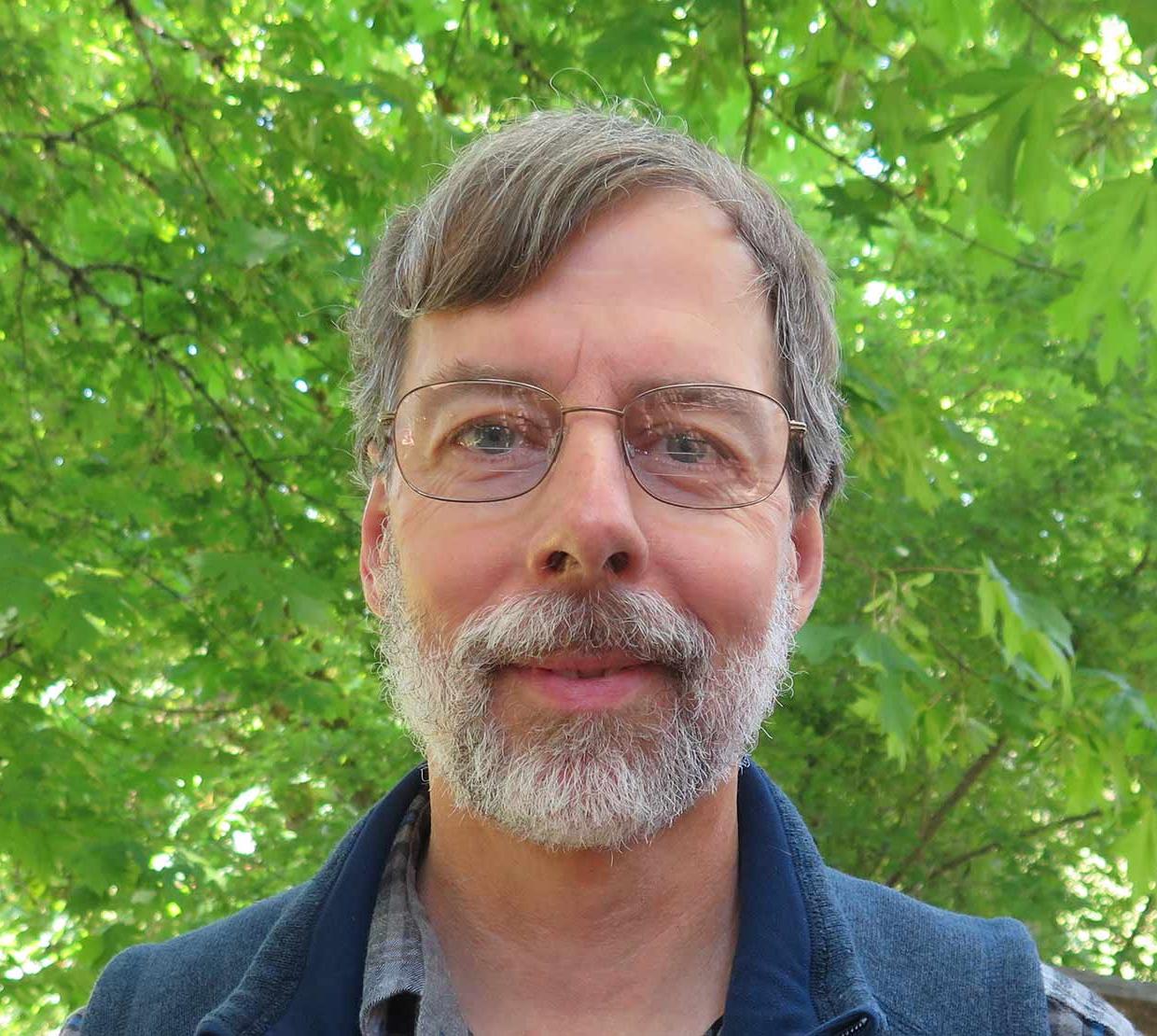Integrative Biology professor and Director of the Oregon State Arthropod Collection David Maddison and his twin brother Wayne Maddison, a professor in the departments of zoology and botany at the University of British Columbia, were honored with the Society of Systematics Biology’s prestigious Presidents’ Award for Lifetime Achievement.
This honor recognizes outstanding and sustained contributions to the field over the course of many years. It has only been awarded four times since 1998. David Maddison received the award at Evolution2016 held in Austin, Texas, June 17-21, 2016.
The Society of Systematic Biologists (SSB) seeks to advance the science of systematic biology, including the aspects of theory, principles, methodology, and practice, for both living and fossil organisms. They also publish the journal Systematic Biology.
Maddison (David) was recognized for his excellence in research which has had a tremendous impact on the field of systematics, including phylogenetics and taxonomy and has significant importance today.
"I feel incredibly honored to have received this award, and I am humbled when I think about others who have been so honored in the past,” said Maddison (David). “ am also very aware of how extremely fortunate I am to get to do what I love—to be an explorer, discovering the diversity of beetles and coming to a deeper understanding of the 3.5-billion-year-old tree of life.
“When I am developing software, I feel like a kid with a giant Lego set, while at the same time, I’m producing tools that have value to others. And I can be inspired by and seek to inspire my fellow explorers, the students and colleagues at this great university.”
His research is focused on the evolution of beetles and developing methods and software for phylogenetic analysis. His area of specialty is the evolution of adult and larval structure and chromosomes of ground beetles. He is collaborating with colleagues to study the phylogeny of the major lineages of carabid beetles, using DNA sequence data as well as morphological characters.
David Maddison holds the Harold and Leona Rice Endowed Chair of Systematic Entomology in the College of Science at OSU. The endowed professorship is generously supported by the Rice family to promote science through the research and teaching activities of an entomologist specializing in Systematic Entomology.
By extension, the endowment greatly enhances the Oregon State Arthropod Collection (OSAC), the largest entomological research collection in the Pacific Northwest with more than three million insects. Built more than a century ago, OSAC is a testament to the university’s long history with eminent arthropod systematists, such as emeriti professor Jerry Krantz (mites), the late Bill Stephen (bees), Jack Lattin (Hemiptera), among others.
OSU’s vast arthropod collections, the strong endowment support and a superb research community all attracted David to Oregon State. He works with colleagues in the College of Agricultural Science, including nationally recognized systematists of fungi, Joey Spatafora; of plants, Aaron Liston; and of fish, Brian Sidlauskas. The work of these systematists has enhanced OSU’s expertise in genomics through the work of the Center for Genome Research and Biocomputing, which facilitates genome-enabled and data-driven research in the life and environmental sciences at OSU and across Oregon.
OSU’s deep commitment to molecular bioscience and to biodiversity has contributed to the university’s reputation as the regional center of excellence for systematics research.
Not merely fellow scientists who work on beetles and spiders, the Maddison brothers impact spans the entire field of systematics.
“David is almost like a kid again when he’s out in the field,” remarked colleague Christopher Marshall, entomologist and curator for OSAC. “He is just amazingly exuberant. I don’t know how else to describe it, but he is able to pass it to students and they become passionate about science.”
While David’s major influence is in the field of phylogenetics in particular and of systematics in general, both he and his brother have been instrumental in developing some of the most important analytical tools for evaluating and sharing phylogenetic/systematics data. For example, they have built two popular software packages for phylogenetic analyses: MacClade and Mesquite; co-founded and led the Tree of Life Web Project, a global collaboration to provide an electronic, annotated phylogeny of all of Earth’s living things; and developed a widely used data exchange format in the field—NEXUS.
Maddison earned his bachelor's degree from the University of Toronto, master's from the University of Alberta, and doctorate from Harvard University in Organismal and Evolutionary Biology.
In his spare time, he likes to draw, make cake sculptures, and do other odd things.




